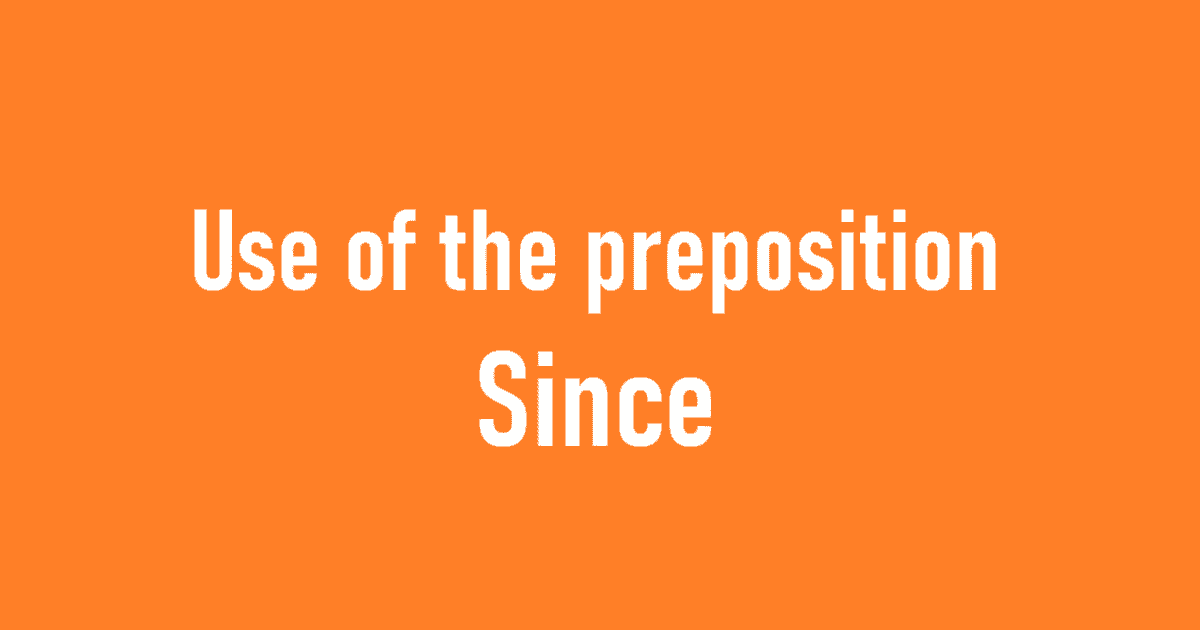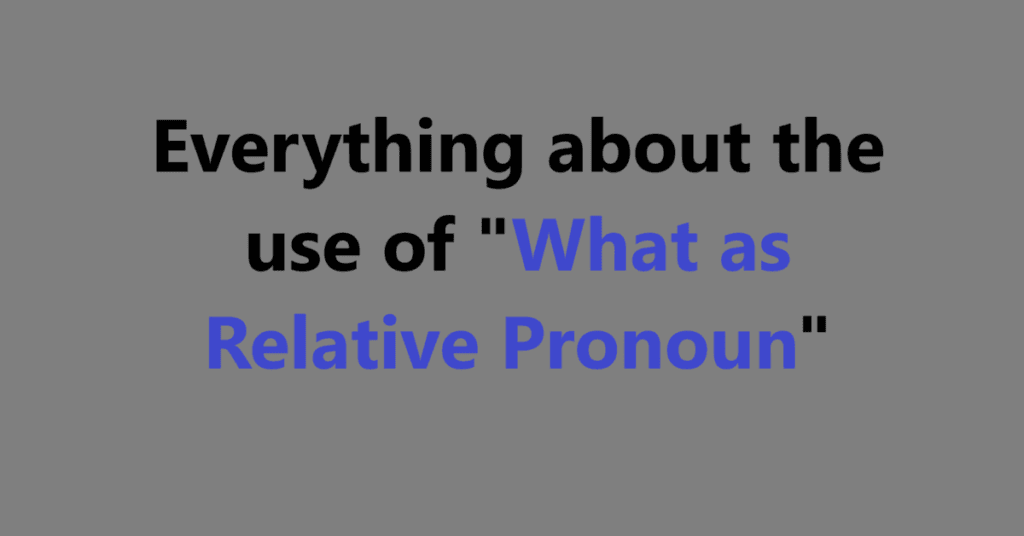Use of the preposition since. The humble preposition “since” might seem simple at first glance, but its versatility and nuances can sometimes trip up even seasoned English speakers. It’s more than just a synonym for “from” or “because.” In fact, it functions as both a preposition and a conjunction, each with its own subtle implications and grammatical requirements. Understanding these differences is crucial for crafting clear, precise, and grammatically sound sentences. This blog post aims to be your definitive guide to mastering the use of “since,” covering its various meanings, grammatical functions, and common pitfalls.
Use of the preposition Since
Understanding the Two Faces of “Since”: Preposition vs. Conjunction
The first step to mastering “since” is recognizing its two primary roles:
- Preposition: When used as a preposition, “since” connects a noun or noun phrase to the rest of the sentence, indicating a point in time from which something has continued.
- Conjunction: When used as a conjunction, “since” connects two clauses, indicating either time or reason.
Let’s delve deeper into each of these roles.
“Since” as a Preposition: Marking a Starting Point in Time
As a preposition, “since” establishes a timeframe that began in the past and continues up to the present. It’s crucial to use the correct tense when employing “since” in this way.
Key Characteristics:
- Followed by a Noun or Noun Phrase: The word following “since” will always be a noun, noun phrase, or pronoun referring to a specific point in time. Examples include: since yesterday, since last year, since my birthday, since 2010, since graduation.
- Present Perfect Tense is Key: The main clause in the sentence almost always uses the present perfect tense (e.g., have/has + past participle). This is because the action or state it describes started in the past and continues to the present.
Examples:
- “I haven’t seen him since last Tuesday.” (The last time you saw him was last Tuesday, and you haven’t seen him from then until now.)
- “She has lived in Paris since 2015.” (She moved to Paris in 2015 and still lives there.)
- “We have been working on this project since the beginning of the month.” (Work started at the beginning of the month and is ongoing.)
- “They have known each other since childhood.” (Their friendship began in childhood and continues to the present day.)
Common Mistakes to Avoid:
- Using the Simple Past Tense in the Main Clause: Incorrect: “I didn’t see him since last Tuesday.” Correct: “I haven’t seen him since last Tuesday.”
- Forgetting the “Have/Has”: Incorrect: “She lived in Paris since 2015.” Correct: “She has lived in Paris since 2015.”
Using “Since” with Durations:
While less common, “since” can also be used indirectly with durations by referencing a specific starting point that defines that duration.
Example:
- “It’s been three years since I last saw her.” (This indirectly communicates a duration of three years using “since” to pinpoint the start of that period.)
“Since” as a Conjunction: Time and Reason
As a conjunction, “since” connects two clauses, playing either a temporal (time-related) or causal (reason-related) role. Distinguishing between these two meanings is vital for accurate comprehension.
1. Temporal “Since”: Indicating Time
When “since” acts as a temporal conjunction, it indicates that one event happened after another, or has continued from a specific point in the past.
Key Characteristics:
- Connects Two Clauses: Each clause contains its own subject and verb.
- Past Perfect or Simple Past in the Clause Following “Since”: The clause introduced by “since” typically uses the past perfect tense (had + past participle) if it describes an action completed before the action in the main clause. Otherwise, the simple past tense is used.
- Main Clause Tense Varies: The tense in the main clause depends on the context and the relationship between the events. It can be present perfect, simple past, past perfect, or even future perfect.
Examples:
- “I haven’t spoken to him since he moved to Australia.” (Simple past after “since” – the moving occurred, and then the lack of speaking started.)
- “She had been feeling much better since she started taking the medication.” (Past perfect after “since” – taking medication happened before feeling better.)
- “We haven’t had any problems since we upgraded the system.” (Simple past after “since” – upgrading happened, and then the absence of problems started.)
- “It’s been raining since early this morning.” (This is similar to the preposition use, but now the “since” clause has a subject and verb.)
Order of Clauses:
The “since” clause can come either before or after the main clause. When the “since” clause comes first, it’s usually followed by a comma.
Examples:
- “Since he graduated from college, he has been traveling the world.” (Comma used)
- “He has been traveling the world since he graduated from college.” (No comma needed)
2. Causal “Since”: Indicating Reason
In this role, “since” serves as a synonym for “because” or “as,” providing a reason or explanation for the statement in the main clause.
Key Characteristics:
- Connects Two Clauses: Each clause contains its own subject and verb.
- Can be Used with Various Tenses: The tenses in both clauses depend on the specific situation and the logical relationship between the cause and effect.
- Emphasizes Consequence: The clause introduced by “since” justifies the statement in the main clause.
Examples:
- “Since it’s raining, we should take an umbrella.” (The reason for taking an umbrella is the rain.)
- “She couldn’t come to the party since she had a prior engagement.” (Her reason for not attending is a prior engagement.)
- “Since you’re offering, I’ll have a glass of water.” (The offer is the reason for accepting the water.)
- “They were exhausted since they had been working all night.” (The all-night work caused the tiredness.)
Order of Clauses:
Like temporal “since,” causal “since” can appear at the beginning or in the middle of the sentence. A comma is generally used when the “since” clause comes first.
Examples:
- “Since the roads were icy, the school was closed.” (Comma used)
- “The school was closed since the roads were icy.” (No comma needed)
Distinguishing Between Temporal and Causal “Since”: Context is Key
Sometimes, it can be tricky to determine whether “since” is being used to indicate time or reason. The context of the sentence is crucial for accurate interpretation. Ask yourself:
- Is the “since” clause describing a time frame or a reason?
- Does the sentence make sense if you replace “since” with “because” or “after”?
Example:
- “I haven’t felt well since the accident.”
- Temporal: This likely means you haven’t felt well after the accident happened.
- Causal (Less Likely): It could potentially mean you don’t feel well because of the accident (perhaps due to lingering injuries or trauma), but the temporal interpretation is more natural.
Advanced Usage and Subtle Nuances:
- Emphasis: Using “since” at the beginning of a sentence can add emphasis to the reason or time period being introduced. “Since you’re here, let’s get started” sounds slightly more forceful than “Let’s get started since you’re here.”
- Politeness: In some contexts, using “since” to give a reason can sound more polite than using “because.” “Since you’re busy, I won’t keep you” is arguably more tactful than “Because you’re busy, I won’t keep you.”
- Formal Writing: While “since” is perfectly acceptable in both formal and informal writing, “because” is often preferred in highly formal academic contexts, especially when expressing a direct cause-and-effect relationship.
Conclusion: Mastering “Since” for Clear Communication
Mastering the use of “since” requires understanding its dual nature as both a preposition and a conjunction, as well as its various temporal and causal functions. By paying close attention to the context, tenses, and clause order, you can wield “since” effectively to create clear, precise, and grammatically correct sentences. This seemingly small word, when used correctly, can significantly enhance the quality and sophistication of your writing and communication. So, practice using “since” in different contexts, analyze its usage in the writing of others, and refer back to this guide whenever you need a refresher. With dedicated effort, you’ll become a “since” expert in no time!
Read Also,
- Use of the preposition above
- Use of the preposition about
- What is Religion
- News in Hindi
- Human vs AI
- Very Important Word Lists
>>> Sir Sahil

